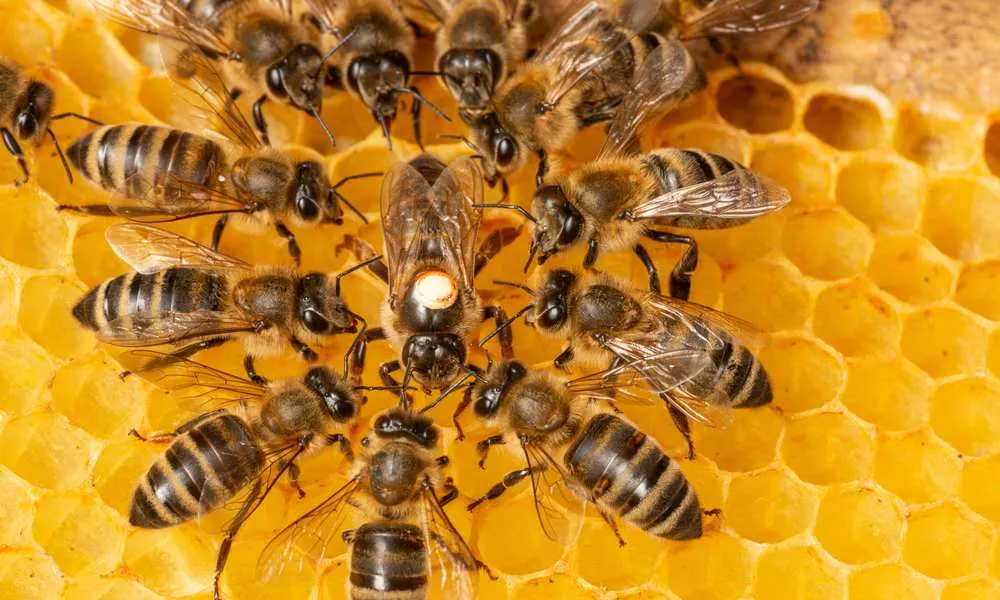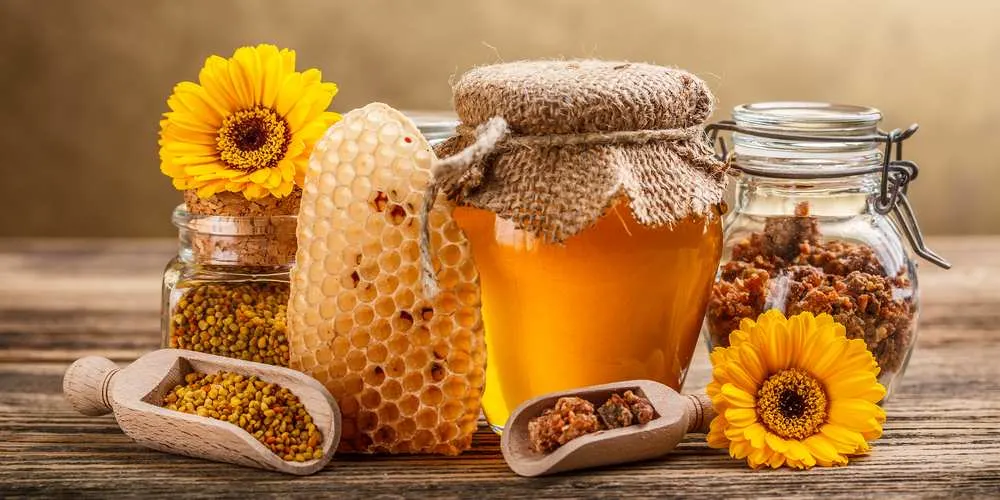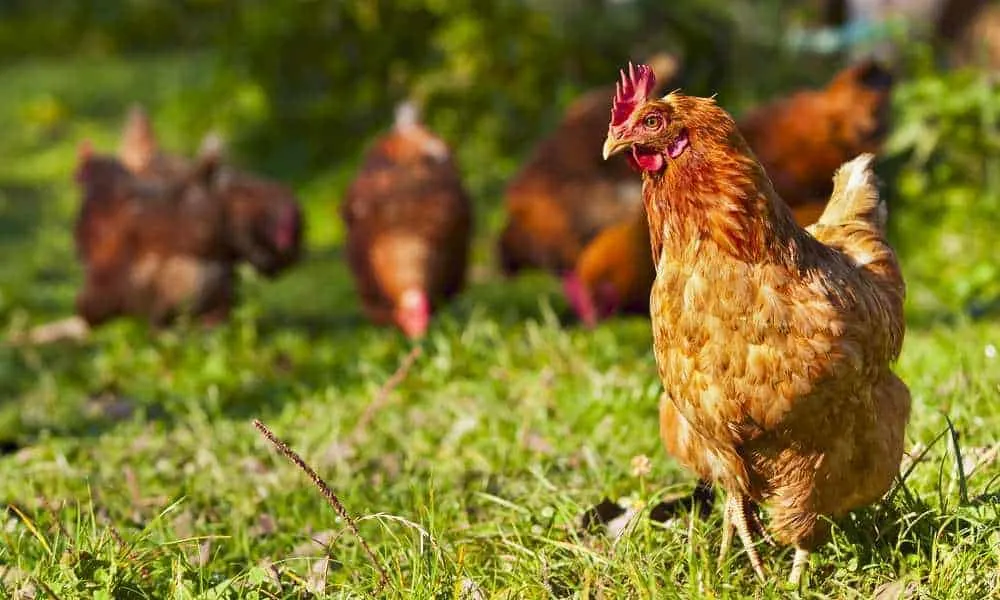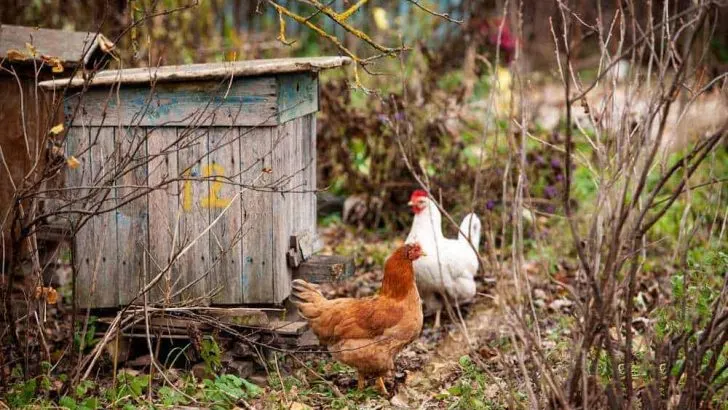Chickens tend to pick on random things they find on the floor. Sometimes, that includes some insects.
So let’s say, one day, you’re watching your flocks, and one of them eats a bee. You’re confused and a bit concerned. A question pops into your mind – can chickens eat bees?
Well, you shouldn’t worry – bees are entirely safe for your feathery friends. There are a lot of insects that chickens can safely consume! However, bee consumption in flocks isn’t always the best idea. Yes, chickens can eat bees, but they shouldn’t.
In this article, we’ll try and explain why bee consumption in chickens isn’t good. And as a little extra info for you, we’re covering if chickens can enjoy some bee products and what insects they should eat!
Read along!

Can Chickens Eat Bees?
Bees are entirely safe for your chicken to consume. They are not poisonous or toxic at all. Like most insects, bees provide fats, protein, and carbs. Heck, even humans in some cultures enjoy a bee meal and consider it a delicacy.
This shouldn’t really be a surprise. This edible insect can even provide numerous health benefits for your chicken. Bee larvae and pupae are high in protein. They are a great source of potassium, magnesium, phosphorus, and minerals like zinc and iron.
If you’re thinking that being stung by a bee is the biggest problem in bee consumption in flocks, you’re wrong. There’s a minimal chance of them being stung. Their thick layers of feathers do a fair job of protecting them.
Well, what’s the problem then?
Bees are well-known for pollination and their role in our ecosystem. Although there are a thousand different bee species around the U.S., the population of bees has been declining over the years. These hard-working insects are vital to us, and if they become extinct, we’re in big trouble.
Over 80% of all flowering plants are specialized for pollination. Bees are capable of pollinating on a big scale. Much bigger than other animals. This is why they are one of the most important pollinators out there. Without these winged creatures, we can go hungry.
Bee consumption isn’t the main threat to their existence. However, on a global scale, they face many threats. This is why we shouldn’t kill these hard-working insects. They have enough problems already!
Bees do no harm to humans or chickens, but they undoubtedly provide both of us good things.
They pollinate the third of our foods, and they give us golden syrup known as honey. Catching bees or deliberately encouraging chickens to eat them just isn’t right.
Bees and Chickens Coexisting
Instead of looking at ways your chickens can eat bees, you should think about keeping them together. Chickens and bees get along very well! These guys have a cooperative relationship.
Chickens love helping the bees out! They gladly clean out their hives by eating up the debris and dead bees. They even clean out the honeycombs! This is where bee-eating can come in handy!
Your feathered friend can free range around the beehives. They also enjoy eating other insects that prey on the hives. That helps the bees a lot! If you notice them eating the bees, deter the chickens with temporary fencing.
Bees aren’t going to bother your flocks; they are docile animals. In fact, the friendship between chickens and bees is actually well-known. Some people even place beehives on the roofs of their chicken coops!

Can Chickens Eat Bee Products?
So, chickens can eat bees, but they shouldn’t. What about bee products?
Honey
Let’s start with the product that bees are best known for honey. Bees can eat honey! Adding some love to their water tanks can do wonders for their health.
Honey can relieve stress, it works as an antioxidant – and can even improve egg quality. Although it’s low in fat, fiber, and protein, honey has a lot of nutrients! As much as we can benefit from honey, chickens can too.
To get to know honey better, here’s the nutritional value of one tablespoon of honey:
| Calories | 64 |
| Fat | 0 grams |
| Protein | 0 grams |
| Fiber | 0 grams |
| Carbohydrates | 17 grams |
| Sugar | 17 grams |
Besides those listed in the table, honey is also rich in iron, zinc, and potassium. The antioxidants in honey can protect your chickens from inflammation. It also helps keep your chick’s lungs in good shape. Remember, they’re prone to respiratory problems!
The only thing that isn’t good for chickens in honey is the sugar. Too much sugar can lead to obesity and a drop in egg production in chickens. However, honey is a much healthier choice than regular, refined sugar and causes less concern.
Because honey is a sticky mess, owners usually don’t know how to feed it to their chickens. Some tips include the above-mentioned honey-water mix and soaking some bread in honey. If you have a honeycomb, even better!
Hang a honeycomb in a place where your chickens can peck it whenever they want. However, although honey is excellent, don’t be too generous. Give them honey or honeycombs sparingly. You don’t want your chick to suffer from obesity!
Bee Pollen
Bee pollen is a naturally made ball. It consists of flower pollen, nectar, enzymes, honey, bee secretions, and wax. This small ball is actually mainly made of the pollen from the legs of worker bees! It shouldn’t be confused with honey or other bee products, like royal jelly.
Bee pollen is a health bomb. It’s so good that it’s even recommended as an alternative to in-feed antibiotics used in poultry feed. It has remarkable health benefits to chicken. Some of them include enhancing immunity, promoting growth, and protecting the intestinal tract of chickens.
This magic ball contains more than 250 active substances. Those include proteins, carbs, fatty acids, minerals, and antioxidants! Even the Federal Ministry of Health in Germany recognizes pollen as a medicine. So, feel free to add some to your chicks feeders!
Royal Jelly
Honey bees produce royal jelly to feed their babies and the queen. You can only imagine how many health benefits the queen’s food has! Just like honey and bee pollen, royal jelly is filled with nutrients.
Just like the already mentioned bee products, it’s rich in antioxidants and has anti-inflammatory effects. The antioxidant activity in royal jelly is mainly because of polyphenolic compounds. It’s also recommended as a potential natural feed additive in chicken diets.

Final Words
Now you know! To sum everything up, don’t give bees to chickens. If they’re dead, it’s okay. But catching live bees to feed them to your flocks isn’t the right thing to do. If your chicken eats one or two bees, it’s not a big problem. It’s just nature. But don’t encourage that!
Daily, bees are dying in high numbers. They are endangered because of pesticides, drought, nutrition deficit, habitat destruction, global warming, and more. We should save the bees! Help them out by not disturbing them and letting them work.
If you’re already keeping bees, even better. Use your chickens to help the winged hard-workers! Chickens and bees can get along nicely, and they help each other out. Chickens can eat all the gunk in the beehives. This way, the hives are clean, and chicks have an additional treat.
Also, try adding honey products to your chickens’ meals. They have loads of health benefits! Honey, bee pollen, and royal jelly are a fantastic addition to your chicken’s diet. It will keep them healthy and happy!
Learn More: What Can Chickens Eat? Feeding Your Hens And Roosters

